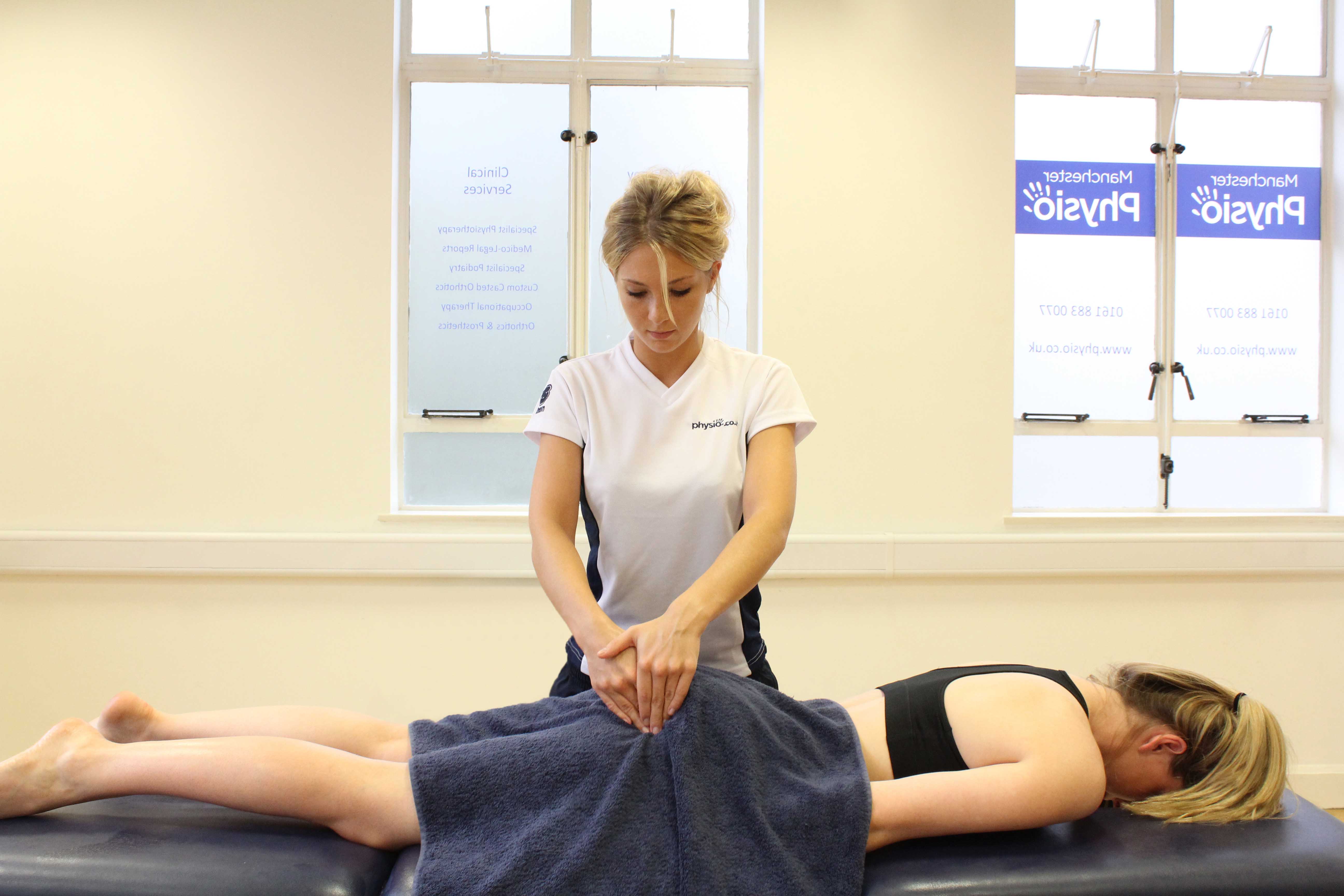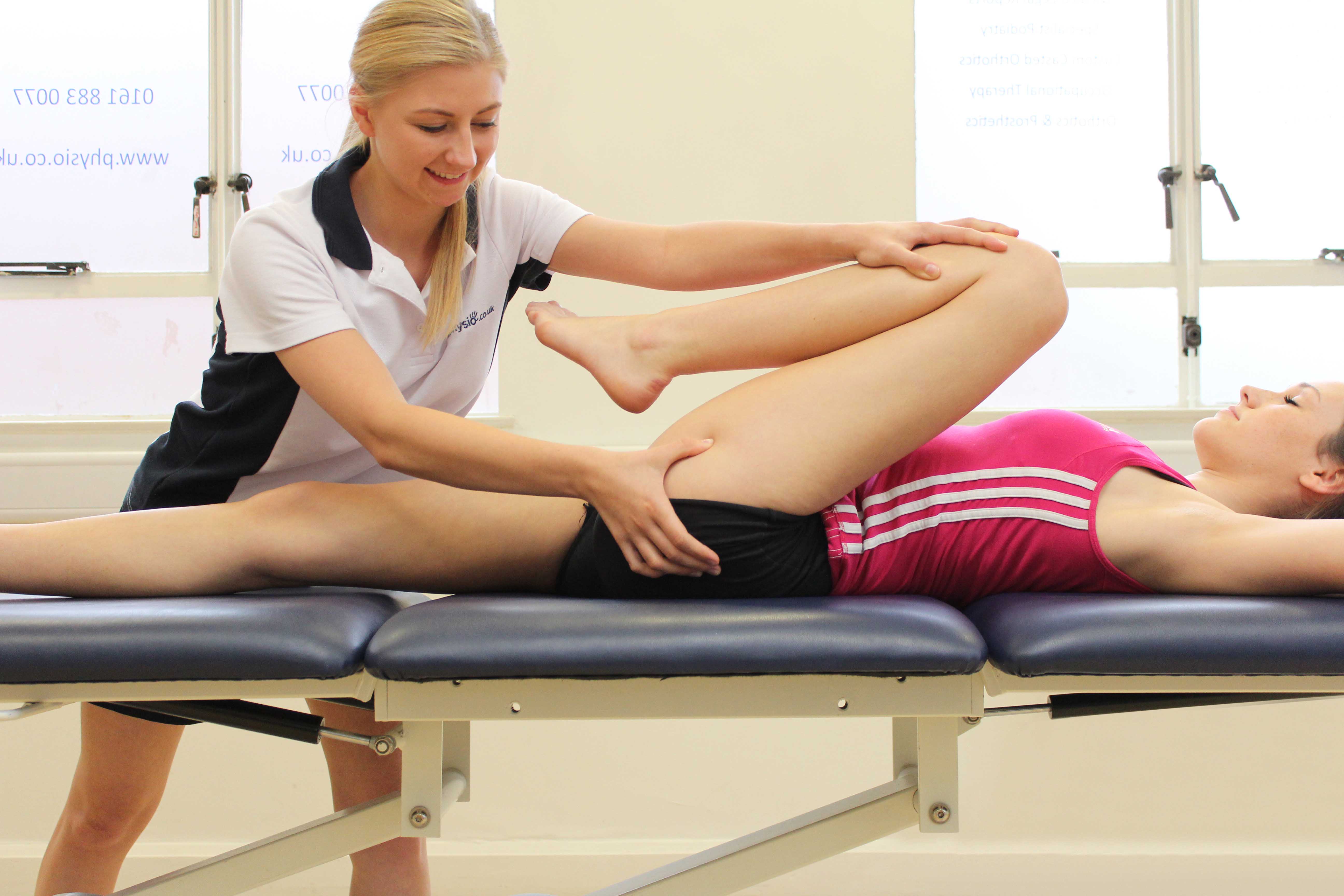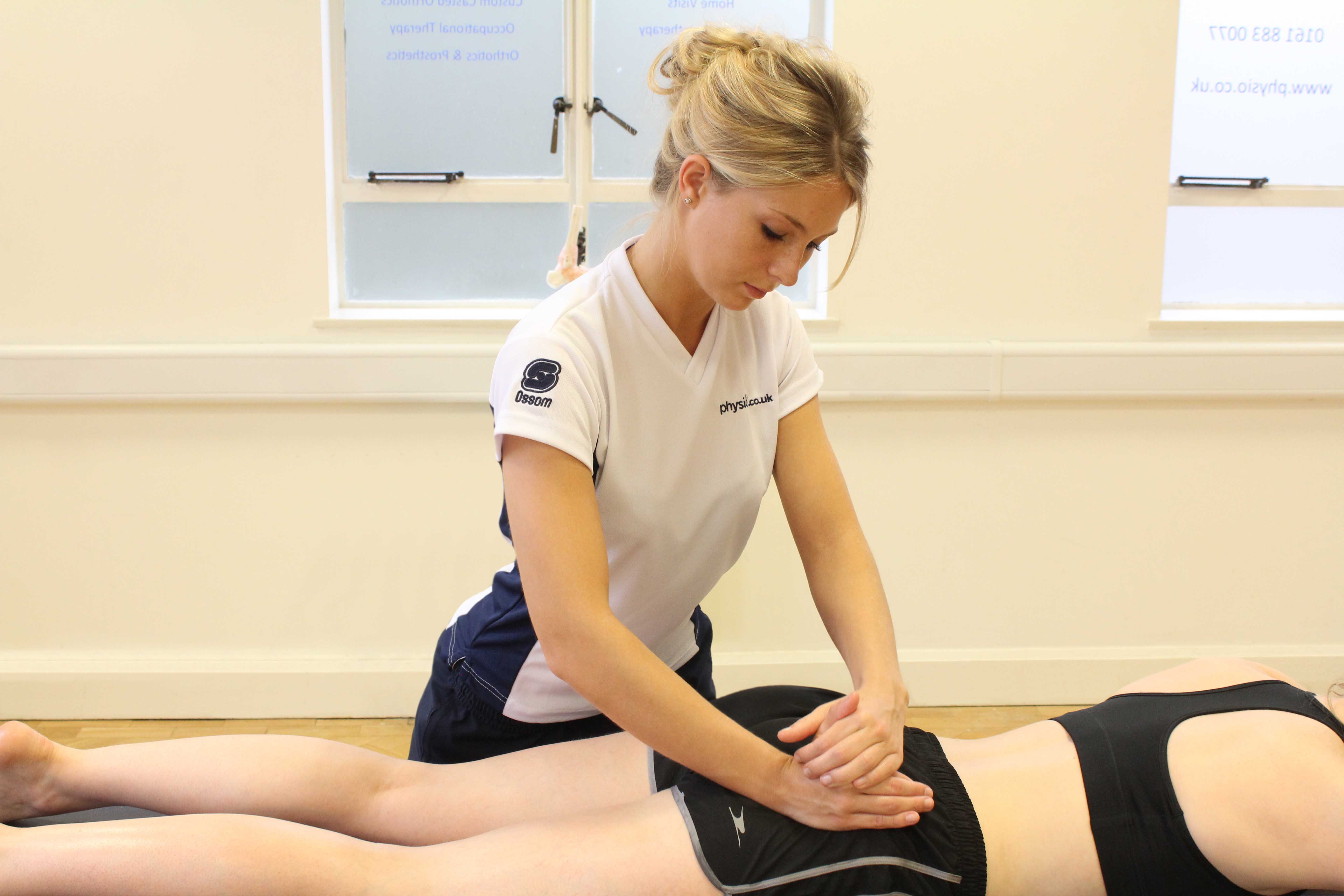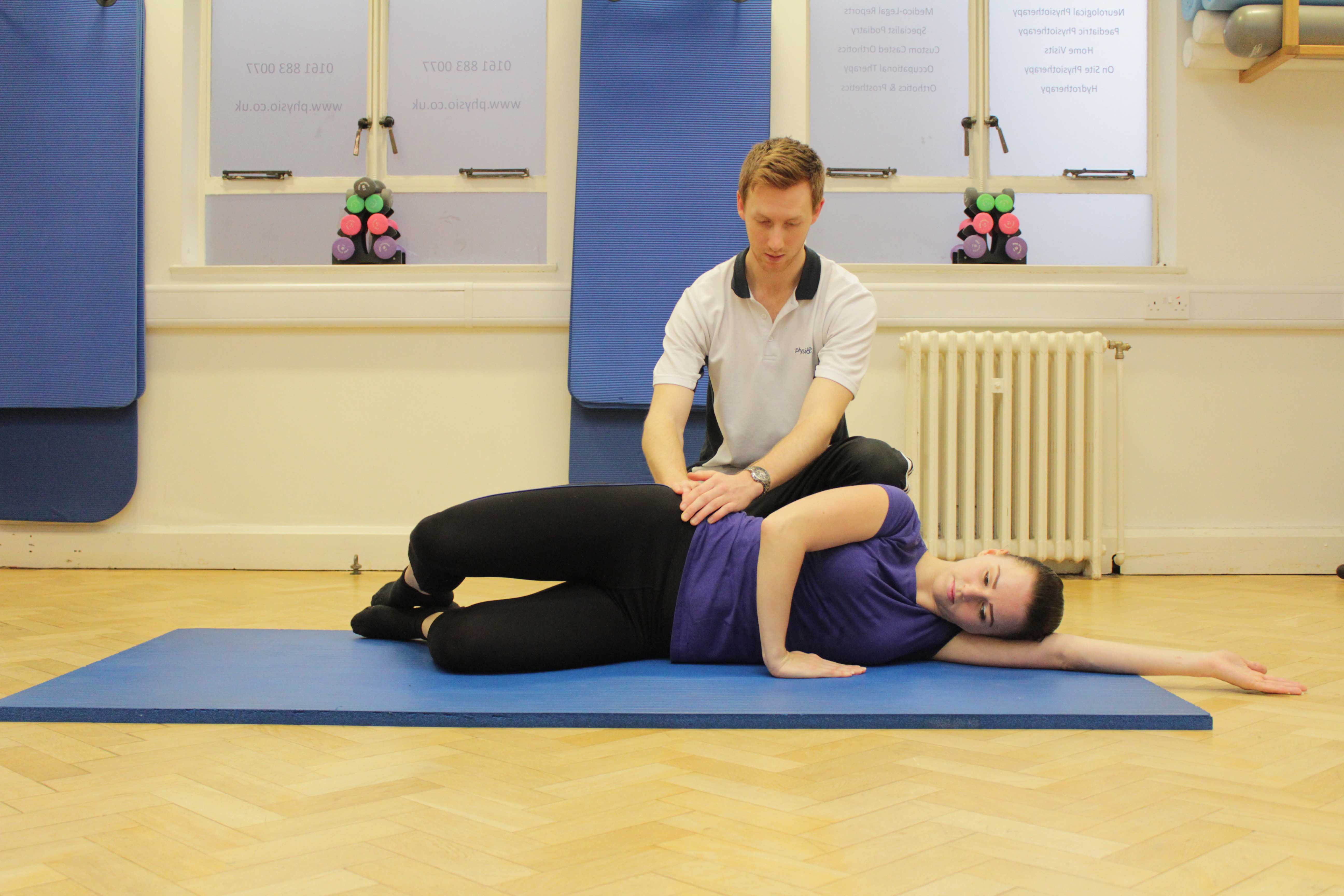What is piriformis syndrome?
The piriformis is a small muscle that lies deep in the buttock. It runs from the base of your spine and attaches to the thigh bone (femur) on the outside of your buttock. A large nerve called the sciatic nerve runs very close to, and sometimes through, the piriformis muscle. Pain that radiates down one leg (sciatica) can be caused if the piriformis compresses or irritates the nerve. Physiotherapy can effectively treat piriformis syndrome.
 Above: Trigger point massage of the lower back muscles by specialist MSK therapist
Above: Trigger point massage of the lower back muscles by specialist MSK therapistHow does piriformis syndrome happen?
Piriformis syndrome is caused by tightening of the piriformis muscle. This tightening may be caused by other tight muscles groups putting strain on the piriformis or other weak muscles that cause the piriformis to perform roles that it is not designed to do. Piriformis syndrome can also be caused by stiffness in the joints between the pelvis and the lower back or pronated (or flat) feet.
What are the symptoms of piriformis syndrome?
Piriformis syndrome causes compression of the sciatic nerve. This compression can cause a deep aching pain in the buttock and down the leg (also known as sciatica). This pain is often combined with tingling or numbness down the leg. The pain may worsen if the hip is moved to its extremes of movement, particularly if the hip is rotated so the toe is pointing inwards. Changing direction whilst running can also be particularly painful. Other symptoms include:
 Above: Beating percussion soft tissue massage applied by an experienced therapist
Above: Beating percussion soft tissue massage applied by an experienced therapistWhat should I do if I have piriformis syndrome?
If you have or suspect you have piriformis syndrome, you should arrange an appointment with a physiotherapist as soon as possible.
Physiotherapy treatment for piriformis syndrome.
Physiotherapy is essential in the treatment of piriformis syndrome. Initially, your physiotherapist can diagnose your problem and establish its severity. From this, your physiotherapist will devise treatment plan to reduce your symptoms by targeting the cause of your piriformis syndrome. Treatment can involve:
 Above: Mobilisations of the vertebrea in the lower back by experienced therapist
Above: Mobilisations of the vertebrea in the lower back by experienced therapistWhat shouldn’t I do if I have piriformis syndrome?
If you have or suspect you have piriformis syndrome, you shouldn’t ignore the problem and continue as normal. If you ignore piriformis syndrome your condition may deteriorate causing a prolonged recovery.
Could there be any long-term effects from piriformis syndrome?
A piriformis condition does not produce any long-term effects, if it is properly diagnosed and treated appropriately. Recovery normally takes place within a number of weeks.
 Above: Rolling Soft Tissue Massage applied to the lower back by an experienced therapist
Above: Rolling Soft Tissue Massage applied to the lower back by an experienced therapistTo arrange a physiotherapy assessment call Physio.co.uk on 0330 088 7800 or book online.

 0330 088 7800
0330 088 7800

































